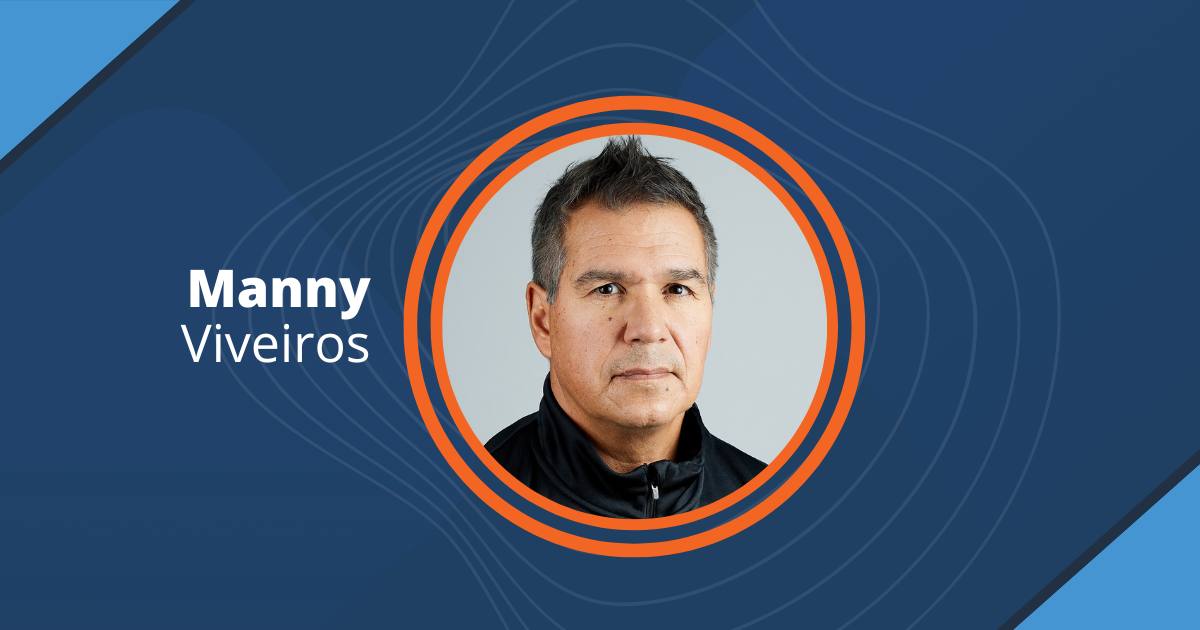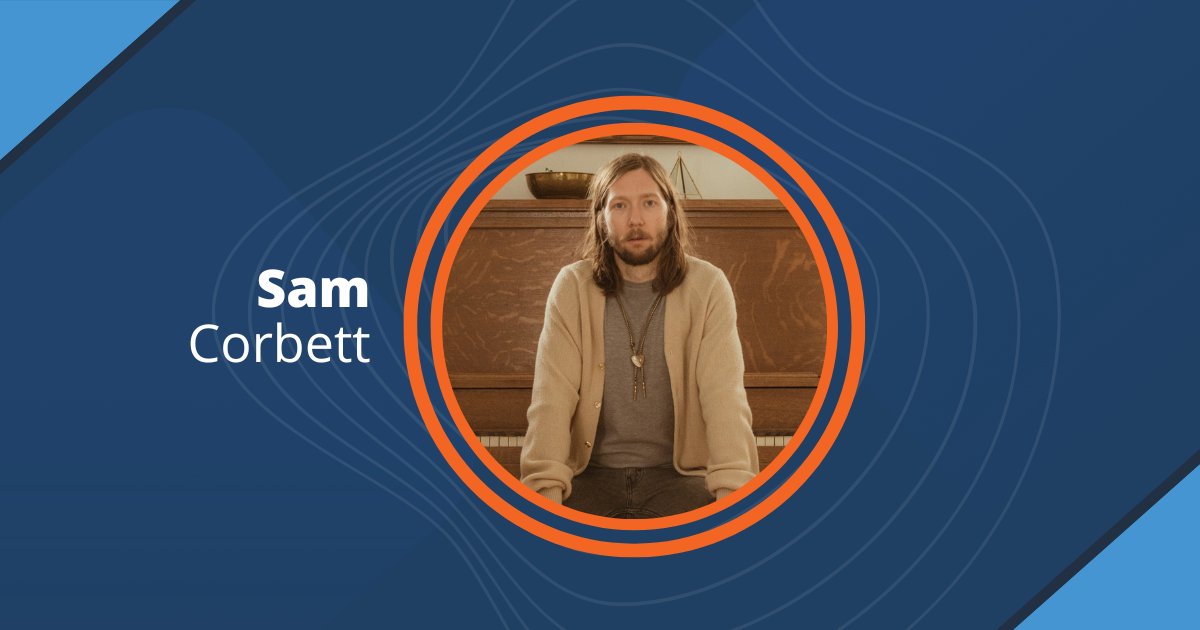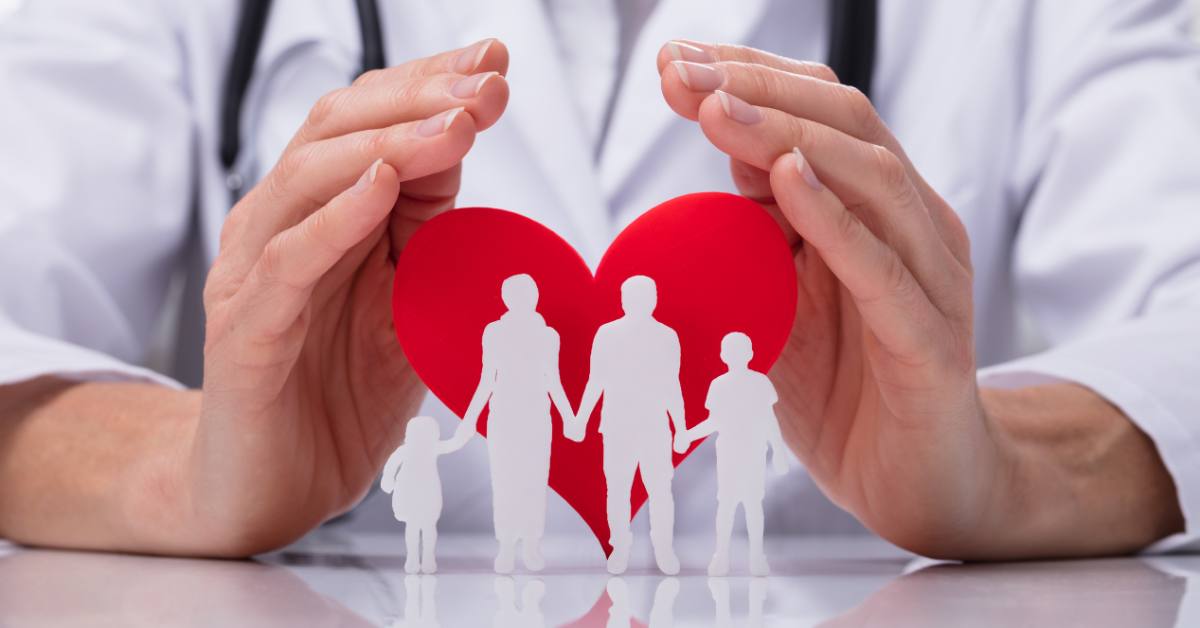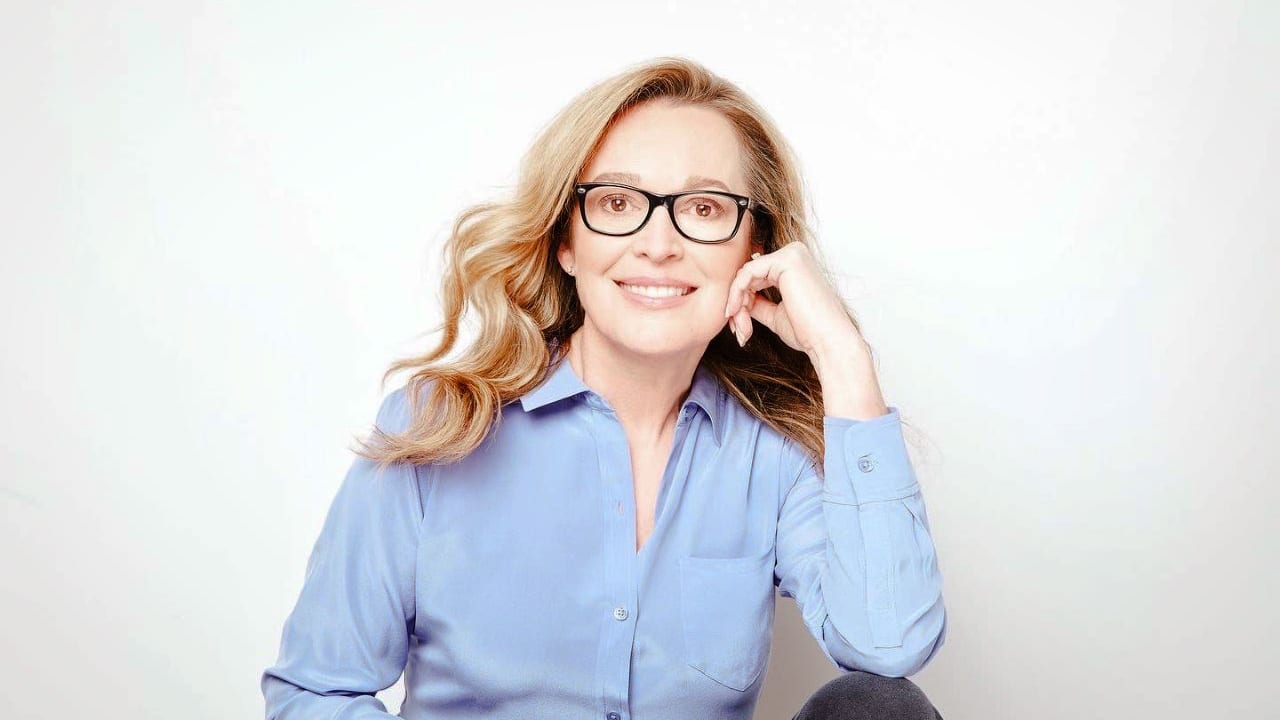Vancouver Giants head coach Manny Viveiros has enjoyed a long and varied hockey career. He played for professional teams across Europe, the AHL and the NHL, making him an ideal fit for coaching. Since retiring from playing in 2006, he’s led teams in Austria, Swift Current, Spokane, and the Edmonton Oilers before landing his current role in Vancouver.
In 2021, Manny was diagnosed with prostate cancer, further complicated by the discovery of colorectal cancer as well. While his body was fit and strong, the emotional effect of two cancer diagnoses and treatment resulted in Manny becoming depressed.
Now recovered, Manny continues to make his health a priority. So much so. He only accepted the Giants job once he was convinced he was physically and mentally prepared to do the job.
In a recent episode of the Don’t Change Much podcast, Manny shared his health journey, navigating 3 of the 8 most common health conditions in men and how he has come to appreciate even more the importance of friends, family, and living a balanced life.
The discovery
Dan Murphy: Take us back to your initial diagnosis. How did you discover that something might be wrong?
Manny Viveiros: I was with the Vegas Golden Knights organization. That was during the pandemic year. Normally, the coaches undergo blood tests and physicals throughout the season or at the beginning of all training camps. We had to miss it that year, but I went through all the normal tests the following year.
The doctor called me a couple of days later and said, “We have some red flags here, Manny. I want you to come in and do another test.” It was a simple PSA test, and my numbers were high. They were concerned about it. So we did a follow-up test, and unfortunately, it did turn out to be prostate cancer.
When you hear the word “cancer,” it’s a shock. We didn’t know where we were at or what stage the cancer had grown to, whether it had gone through my body or anything. So we were in total shock. We continued doing different tests, scans, MRIs, and blood work. I was very fortunate to get some excellent care. And within 6 or 7 weeks, I was able to get an operation done.
Dan Murphy: Were you able to process that news over that time? Or were you so focused on getting the care you needed that you didn’t have time to mentally deal with what you were going through?
Manny Viveiros: I didn’t think this could happen to me. Like anything, you never think it could happen to yourself. I took care of my body. I worked out. I ate properly. And there wasn’t a history in my family of prostate cancer. I thought I was in really good condition.
Then, of course, I thought about my family. You worry about them. I kept thinking, “What’s going to happen to my wife? What’s going to happen to my boys?” I was experiencing that flight or fight mentality and kept saying, “Whatever we gotta do, let’s do it.”
Dan Murphy: Now, as I understand it, you not only had to deal with prostate cancer, but you had a second diagnosis on top of that. What was the timeline for discovering colorectal cancer?
Manny Viveiros: I knew I was going to have to do some radiation treatment for prostate cancer. My doctor said, “Why don’t we get a routine colonoscopy?”
We were expecting it to be routine, but I got a call about a day later. My doctor said, “No, we have something here we’re quite concerned about.” And sure enough, it was colorectal cancer.
The surgery for that type of cancer is quite a significant surgery. It’s done robotically. All I could think was, “Are you kidding me? What are the odds of this happening?” Because it took me a long time to recover from that first surgery. I just didn’t know what to think anymore.
More than a physical toll
Dan Murphy: How did recovery after the second surgery go?
Manny Viveiros: I was back on the bench with the guys for playoffs, not even 10 days after my surgery. That’s when I realized I was running on pure adrenaline. I was still in shock, still in that flight or fight mode, and focused on putting up a brave face for my family.
Dan Murphy: Looking back, would you make that same decision again to put on a brave face for your family?
Manny Viveiros: In hindsight, I wouldn’t. But, in the moment, that’s just who I am. That’s how I’m wired. I wanted to be back and competing. That was my group, where I felt comfortable and safe.
I showed up at development camp while still with the Vegas Golden Knights. I was coming back from chemo and radiation, and I jumped on the ice. I remember not even registering where I was. These kids were flying by me, and I didn’t know where I was. I tried to bluff my way through this practice. Thankfully, I had nothing to do. But I wanted to be part of it.
In hindsight, it’s probably the worst thing I could’ve done. I needed to rest. After chemo, my doctors were concerned not just about my well-being but about my life.
I just wasn’t myself. I hated going to the rink. I hated being around home. It wasn’t good. And thank God my wife was there for me. She said, “We need to get you some help.”
My oncologist explained the physiology of cancer to us. Basically, after the fight that you have gone through, it’s normal for a lot of cancer patients to crash since they’ve been burning so much adrenaline. Your body and mind need the adrenaline to keep you strong and positive to fight the disease. Eventually, you reach a point where your body and brain can no longer produce it on their own. You need time to rest and recover.
Illness, isolation & family
Dan Murphy: So when your wife said you needed help, she wasn’t talking about physically. She was talking about your mental health. You didn’t even want to confront its mental aspect at that point?
Manny Viveiros: I remember I’d go to the rink, and I would sit outside in my vehicle thinking, “I can’t go in.” Then I convinced myself to go in and put on my normal, brave face. For most people who know me, I’m a “glass is half full” guy. But my family noticed I had changed. I was lucky to have them because I really didn’t feel right.
Dan Murphy: Did you seek out therapy?
Manny Viveiros: I certainly did. I talked about things that were bothering me, and I was reassured that my experiences with depression were all normal. I don’t know what the percentage is, but it’s the majority of people with cancer who experience that.
And to anyone who thinks they may be experiencing depression, don’t be afraid to ask for help. Even if you don’t think you need help. If someone’s telling you that you may need help, listen to them because there’s a good chance that that person who’s close to you knows you better than anybody. And don’t feel embarrassed.
Dan Murphy: This is a good reminder that you must be proactive if you think something is wrong.
Manny Viveiros: Exactly. Both my boys now—they’re in their 30s—they’re getting checked. It’s never too early, especially when there’s family history, to get that exam to ensure everything’s okay.
Dan Murphy: Were you always open to sharing your story about your cancer?
Manny Viveiros: I didn’t want to see anybody during my treatments. I lost quite a bit of weight. There’s a reason for it, but I didn’t want people to see me like that. But then I realized the worst thing you can do is isolate yourself.
You need to let your closest family and friends be near you. They need to mourn with you and share their pain. And that’s okay. You don’t have to be brave. I wish I would’ve opened up a lot earlier and maybe shared some of that with my family.
Men need each other
Dan Murphy: How have your experiences changed the way you coach your players?
Manny Viveiros: My coaching style has always been more than checking the kids’ Xs and Os. I advocate for my players and am committed to ensuring they are in a good place and a comfortable and safe environment.
I have a good relationship with the players as far as communication goes. It’s never my way or the highway. It’s an open dialogue with my players. It’s often their first time away from home, so it’s a big challenge for these young guys to be able to manage school, travel, and the Western Hockey League.
Yes, hockey players are incredibly tough at how they play the game. But at the end of the day, they’re human beings. They go through a lot of adversity and daily stresses that they sometimes can’t handle themselves. The stigma of being tough, especially for males, is something we need to eliminate.
I don’t want my players to feel embarrassed if they face a challenge. I want them to be able to come to me and lean on each other, too. Men can be a great support for each other if we move away from thinking it’s a weakness to show emotion.
The future looks bright
Dan Murphy: Have you changed anything about how you care for yourself?
Manny Viveiros: I try to take more for myself when I need it, to rest. I certainly changed my diet, too, for the most part. I’ve always tried to eat healthy, but I’m more conscientious of what I eat now. If I watch too many videos or TV, I go for a walk, go to the gym, or do something with my wife.
Also, I don’t get worked up too quickly about things. If something feels like a big issue, I ask myself how I will feel about it a week from now. Most of the time, nothing is that important. From that, I have a lot more patience.
I still do my checkups every 3 months. I’m fortunate to have a doctor and oncologist who work well together. I just had a checkup in January, and everything was in good shape, so I probably won’t go back for another 6 months.
Dan Murphy: If a young man out there wants to make health more of a priority but doesn’t know how or doesn’t think they need to right away, what would your message be?
Manny Viveiros: Talk to a doctor or to a mental health professional. There are so many resources out there nowadays, whether through their school, another program, or even a hotline. Call them and get the resources you need to get on top of your health.
Most importantly, feel free to talk to somebody or to start the conversation. And if you see someone in your life who appears to be struggling, check in with them to see if they are all right. You could make a huge difference in your friend’s life if you speak up and let them know you’re there for them.













I am 82 years young and I have depression, for a number of years now.